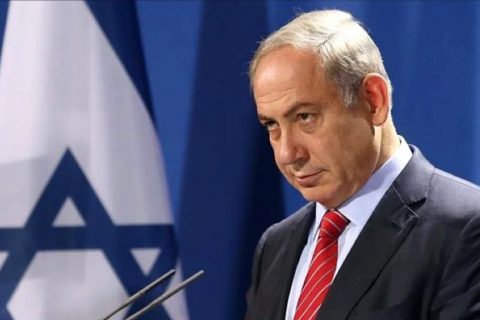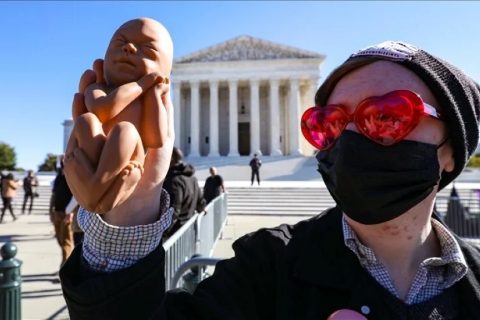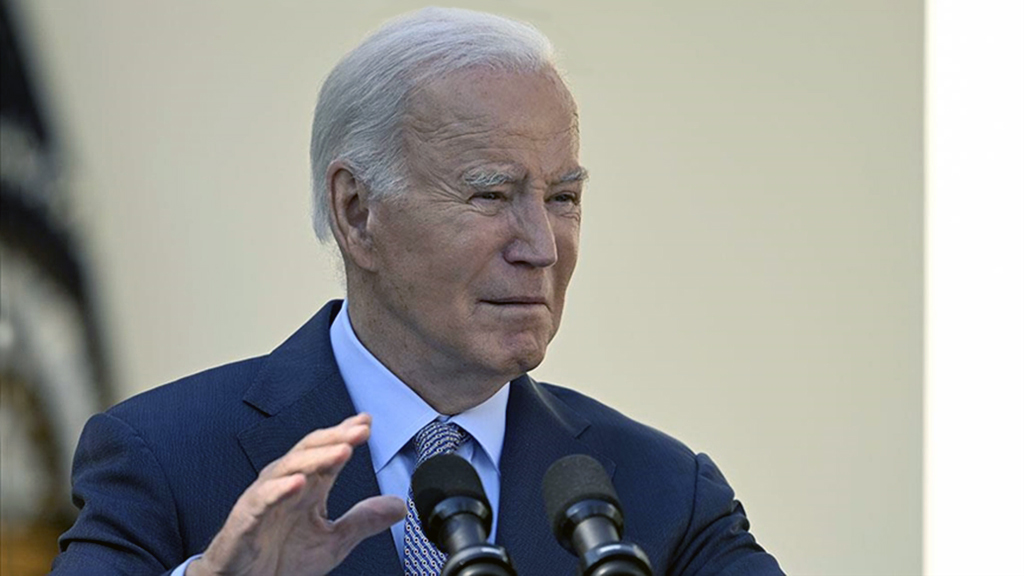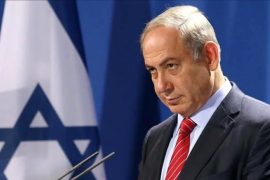Joe Biden

The ‘tragedy’ of US policy vis-a-vis Israel
| OpinionThe Biden administration seems to have at least temporarily succeeded in preventing Iran’s direct attack …
-
Opinion
Netanyahu’s Iran card…
By Kadir ÜstünIn response to Israel's striking of Iran's consulate in Syria, Ayatollah Khamenei's statement of "retaliation will be given" has heightened the possibility of the regional proxy war escalating into direct conflict. Since October 7th, Netanyahu has been attempting to expand the conflict by targeting Hamas and Shia militia objectives in both Beirut and Syria. The relatively controlled continuation of the "regional war" relied on Iran and Hezbollah refraining from militarily supporting Hamas. However, Khamenei's remarks suggesting that striking the Iranian consulate would mean targeting Iranian soil have also put Washington on high alert.
-
Opinion
Trump’s election-focused abortion statement
By Kadir ÜstünIn the presidential race, Trump demonstrated that he would not take an ideological stance on the abortion issue, which Biden wanted to make a central agenda. Instead, he refused to be cornered on this issue. Conservative Republican groups expected Trump to support a law that would impose abortion restrictions across the country. However, Trump, having seen how supporting Trumpian candidates who advocated for abortion bans hindered their electoral success in midterm elections, did not want to face the same fate.
-
Opinion
Did Biden abandon Israel at the UN General Assembly?
By Kadir ÜstünThe 'immediate ceasefire resolution' issued by the United Nations General Assembly (UNGA) due to the United States' abstention indicates that the Biden administration's political pressure on Israeli Prime Minister Netanyahu persists. Despite the White House emphasizing that the decision is not binding and that there are no changes in policy, Netanyahu canceled the visit of the delegation he planned to send to Washington immediately after the UNGA decision. The fact that the Biden administration, which has been diplomatically protecting Israel with its veto power since October 7th, chose to abstain this time suggests that the crisis in bilateral relations has reached its peak. While Netanyahu may lean towards Trump, who has advocated for ending the conflict, Trump's remarks have increased American pressure.
Bu Konuda Daha Fazla
-
Will there be cease-fire in Gaza during Ramadan?
By Muhittin AtamanFor the past five months, Israel has been targeting the innocent people of Gaza, with the United States and most Western governments continuing to mobilize their resources to support Israel’s brutal attacks against Gaza. By now, the attacks have become Israel’s longest intensive military operation against the Palestinians. On the one hand, while the Palestinian people are at their most vulnerable position and facing genocide, hundreds of millions of people around the world are chanting their just cause. On the other hand, as Israel continues its longest and most brutal attacks against the Palestinians, it has lost legitimacy not only in the eyes of the international community but also in the eyes of most of its supporters. It seems that this is the main paradox of post-Oct. 7.
-
What do the results of Super Tuesday indicate?
By Kadir ÜstünIn American elections, especially in swing states, the turnout of party voters is crucial. Trump, while seeking to win over independent voters against Biden, also needs to court Republican voters. Haley's announcement of withdrawing from the race and not endorsing Trump in her speech aimed to remind the party's internal opposition that cannot be easily ignored. Haley indicated this by stating that Trump would "make an effort to win the votes of those who didn't vote for him." Despite the knowledge that Trump would comfortably win on Super Tuesday and secure the party nomination, a quarter of voters in many states expressed their dissatisfaction by voting for Haley. Haley's ability to garner significant support without spending substantial amounts on campaign ads last week demonstrates the presence of a considerable number of people dissatisfied with Trump's candidacy.
-
Michigan sends Palestine message to Biden, issues centrism warning...
By Kadir ÜstünIn the recent primary elections held in Michigan, a state where Arab and Muslim voters could have a critical impact on the November 2024 presidential race, a clear message was sent to Biden regarding Palestine. Michigan, known as a swing state, saw Trump win over Clinton by a narrow margin of 11,000 votes in 2016. In this week's Democratic Party primary elections, the fact that over 100,000 voters opted for the 'uncommitted' option against Biden constitutes a critical warning to the President. The highly effective 'Dump Biden' campaign launched before the primaries was evidently impactful. Despite Biden's attempts to address the Palestinian backlash with some statements to the press before the primaries, it was revealed that these remarks did not suffice to appease the Palestinian sentiment within the party. So far, Biden has been gauging the reactions of young people, African Americans, and Muslims within the party through polls, but the results of the Michigan primaries indicate a shift in voting behavior among these demographics.
-
World at stake: Dynamics on second anniversary of Russia-Ukraine...
By Burhanettin DuranThe world was not in good shape on the second anniversary of the Russian-Ukrainian war. A quick look at the most recent developments alone would suffice to appreciate that we are entering a period of fragmentation and high risks.
-
An elderly man with a weak memory but good...
By Kadir ÜstünThe recent comments by special prosecutor Robert Hur, appointed by the US Department of Justice, describing President Biden as a 'senile, well-intentioned, elderly man' reignited the debate about Biden's age. Biden's enduring image of being elderly and lacking dynamism seems to be his biggest disadvantage in the November elections. Holding the title of the oldest sitting president in American history, Biden will break his own record as the oldest presidential candidate in the November elections. The fact that Trump, at 77, is running against the 81-year-old Biden will leave American voters with the choice of electing their oldest president. While some argue that age discrimination is unfair, Biden's advanced age has become a significant point of discussion that could influence the outcome of the election. In addition to Biden's memory issues, his controlled and brief appearances in public, contrasted with Trump's more dynamic demeanor, present a serious handicap.

















